The sun rose over the vast savannah, casting a golden glow upon the untamed beauty of the Maasai Mara. Amongst the endless plains and rolling hills, a small, charismatic bird captures the attention of seasoned wildlife enthusiasts and curious newcomers alike. Graced with a name as intriguing as its appearance, the Ruddy Turnstone journeys thousands of miles to this African wilderness, weaving its own vibrant story amidst the rich tapestry of the Mara’s diverse ecosystem. In this article, we delve into the fascinating world of the Ruddy Turnstone, uncovering its secrets and exploring its mesmerizing presence in the heart of Maasai Mara. So, buckle up and prepare to embark on a journey that harmonizes nature’s allure with the whimsical allure of this enchanting avian species.
Table of Contents
- Exploring the Unique Habits and Behaviors of Ruddy Turnstone in Masai Mara National Park
- Unveiling the Fascinating Migratory Patterns of Ruddy Turnstone in Masai Mara National Park
- Understanding the Role of Ruddy Turnstone in the Ecosystem of Masai Mara National Park
- Protecting the Precious Habitats of Ruddy Turnstone in Masai Mara National Park
- Efforts and Strategies to Promote the Conservation of Ruddy Turnstone in Masai Mara National Park
- The Importance of Sustainable Tourism in Preserving Ruddy Turnstone Population in Masai Mara National Park
- Q&A
- Future Outlook
Exploring the Unique Habits and Behaviors of Ruddy Turnstone in Masai Mara National Park
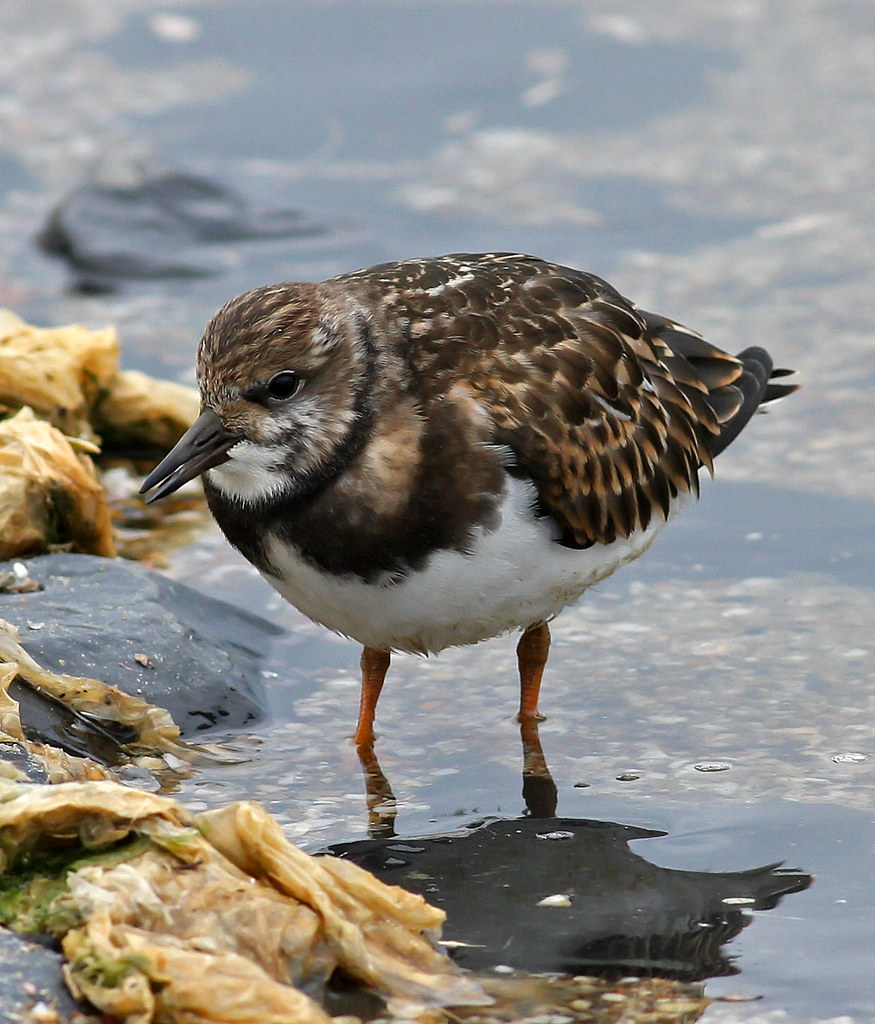
Masai Mara National Park is known for its diverse wildlife, and one fascinating bird species that can be found here is the Ruddy Turnstone. These small shorebirds are a common sight along the Mara River, where they exhibit unique habits and behaviors that make them a remarkable species to observe.
One distinctive behavior of the Ruddy Turnstone is its feeding technique. They can often be seen turning over rocks and pebbles in search of small invertebrates, such as insects and crustaceans. This behavior gives them their name, as they appear to be “turning stones” with their bill. It is amazing to watch their agile movements as they flip stones to uncover their next meal. Ruddy Turnstones are also known to be highly territorial when it comes to their feeding areas, defending their space vigorously from other birds.
Unveiling the Fascinating Migratory Patterns of Ruddy Turnstone in Masai Mara National Park
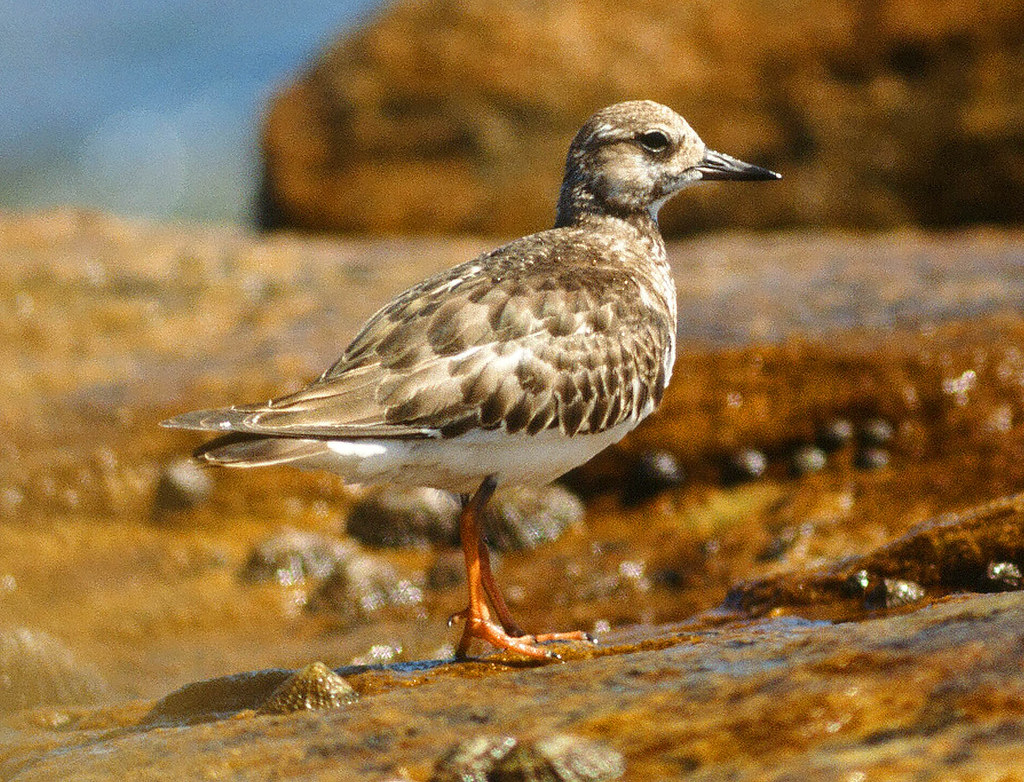
Nestled within the vast savannahs of the renowned Masai Mara National Park lies a mesmerizing phenomenon: the migratory patterns of the Ruddy Turnstone. From the Arctic tundra to the bountiful plains of Africa, these charismatic birds embark on an epic journey spanning thousands of miles, truly capturing the essence of nature’s marvels. As the crisp autumn breeze heralds their arrival, these avian adventurers grace the Mara with their vibrant plumage and remarkable behaviors, captivating both seasoned ornithologists and curious visitors alike.
The Masai Mara National Park provides an ideal haven for the Ruddy Turnstones during their grand migration. With its diverse habitats ranging from open grasslands to dense riverine forests, these agile birds find solace and sustenance within the park’s expansive boundaries. As the savannah transforms into a tapestry of golden hues, witness these fascinating creatures engage in their quest for survival. Marvel at their unique feeding habits as they deftly flip stones and debris with their beaks, exposing hidden invertebrates for a quick and satisfying meal. Spot them in groups, diligently foraging near the freshwater lakes, their vibrant orange-red plumage contrasting beautifully against the verdant landscape.
Understanding the Role of Ruddy Turnstone in the Ecosystem of Masai Mara National Park
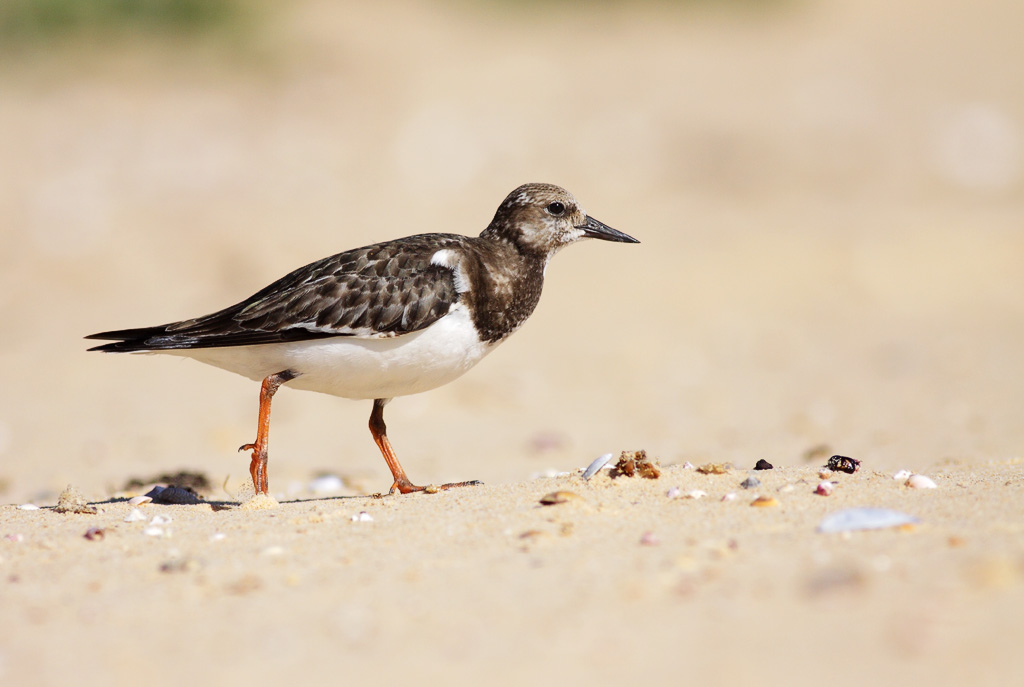
The Ruddy Turnstone is a fascinating bird species that plays an important role in the diverse ecosystem of Masai Mara National Park. This small shorebird, known for its distinctive orange legs and beautiful mottled feathers, can be found along the sandy beaches and rocky shores of the park’s water bodies. Its presence in this unique habitat brings a plethora of benefits to the delicate balance of species coexistence.
One of the crucial roles of the Ruddy Turnstone is its contribution to nutrient cycling. As it searches for food among the sand and rocks, it actively disturbs the sediment, allowing nutrients to be released into the surrounding water. This process facilitates the growth of vital aquatic plants and algae, which serve as a primary food source for numerous fish species. The Ruddy Turnstone also preys on small invertebrates such as insects and crustaceans, helping to regulate their populations and promote biodiversity in the park.
Protecting the Precious Habitats of Ruddy Turnstone in Masai Mara National Park
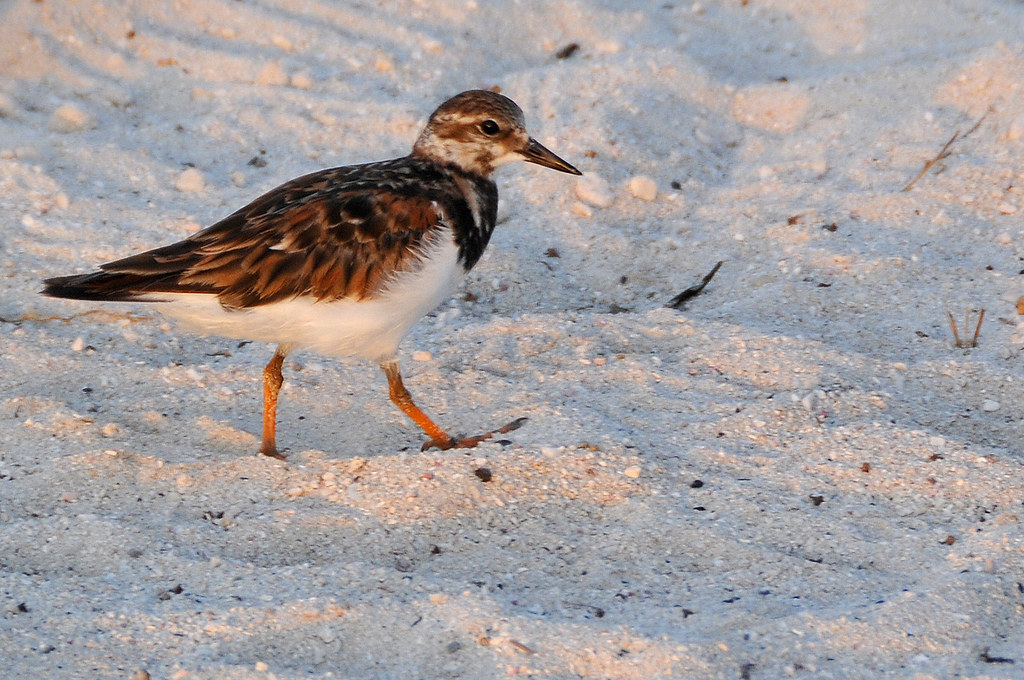
The Masai Mara National Park is home to a stunning array of wildlife, but perhaps one of the most fascinating and precious species found here is the Ruddy Turnstone. These beautiful birds rely on the park’s unique habitats to survive, making it crucial for us to protect and preserve their environment.
One of the most important habitats for the Ruddy Turnstone in Masai Mara is the coastal beaches and estuaries. These areas provide the birds with a rich source of food, including small invertebrates and insects. By maintaining the cleanliness and health of these beaches, we can ensure that the Ruddy Turnstone’s feeding grounds remain intact. Additionally, the park’s extensive wetlands, with their shallow waters and abundant plant life, serve as nesting sites for these birds. Protecting the wetlands from pollution and human disturbance is vital in ensuring the survival of the Ruddy Turnstone population.
Efforts and Strategies to Promote the Conservation of Ruddy Turnstone in Masai Mara National Park
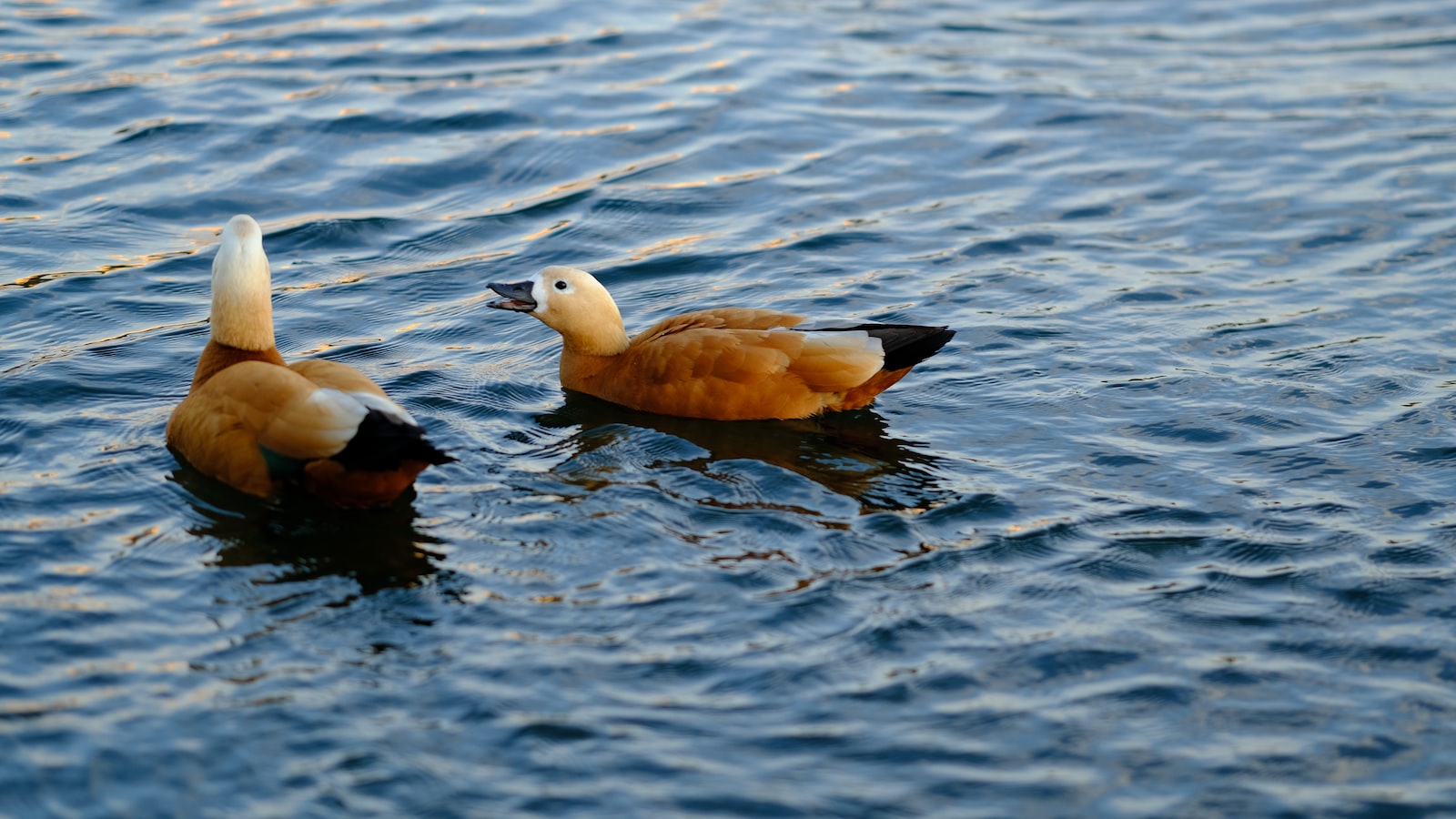
Nestled within the remarkable Masai Mara National Park lies the enchanting habitat of the Ruddy Turnstone, a migratory bird of exceptional beauty and ecological importance. As responsible stewards of this magnificent park, numerous efforts and strategies have been meticulously implemented to promote the conservation of the Ruddy Turnstone population.
The Power of Partnership
Collaboration is the cornerstone of successful conservation endeavors within Masai Mara National Park. The park management joins forces with local communities, researchers, and international organizations to design and implement holistic conservation programs. These dedicated partnerships play a key role in spreading awareness about the Ruddy Turnstone’s migratory patterns and ecological significance.
- Bird Education Programs: Education is a powerful tool in fostering an understanding and appreciation for biodiversity. Hence, interactive bird education programs are organized throughout the park, engaging visitors and residents alike. Through exciting workshops, guided bird-watching tours, and interactive displays, locals and tourists can witness the beauty of these birds firsthand and grasp the importance of their conservation.
- Community Engagement: Masai Mara National Park has implemented various community-centered initiatives, ensuring that local communities are actively involved in conservation efforts. These initiatives include capacity building, training programs, income-generating activities, and the promotion of sustainable livelihoods. By incorporating the communities as guardians of the Ruddy Turnstone and its habitat, the park secures its long-term preservation.
Protecting the Habitat
Preserving the delicate ecosystem that sustains the Ruddy Turnstone population is crucial. Therefore, targeted strategies have been implemented to protect their habitat from potential threats.
- Habitat Restoration: The park administration, in collaboration with environmental experts, spearheads habitat restoration projects. These projects aim to reclaim degraded areas, ensuring the availability of suitable breeding grounds and foraging sites for the Ruddy Turnstone. Through reforestation efforts, soil erosion control measures, and invasive species management, the park ensures a thriving habitat for these migratory wonders.
- Environmental Awareness Campaigns: Constant advocacy regarding the preservation of the natural environment is essential. Environmental awareness campaigns are conducted regularly, targeting both local communities and park visitors. By promoting responsible tourism and encouraging sustainable practices, these campaigns instill a sense of responsibility towards the fragile ecosystem, ultimately benefiting the Ruddy Turnstone and its fellow inhabitants.
The efforts and strategies implemented within Masai Mara National Park stand as a testament to the commitment towards the preservation of the Ruddy Turnstone population. Through partnerships, community engagement, habitat restoration, and environmental awareness campaigns, the park diligently safeguards the future of these stunning migratory birds.
The Importance of Sustainable Tourism in Preserving Ruddy Turnstone Population in Masai Mara National Park
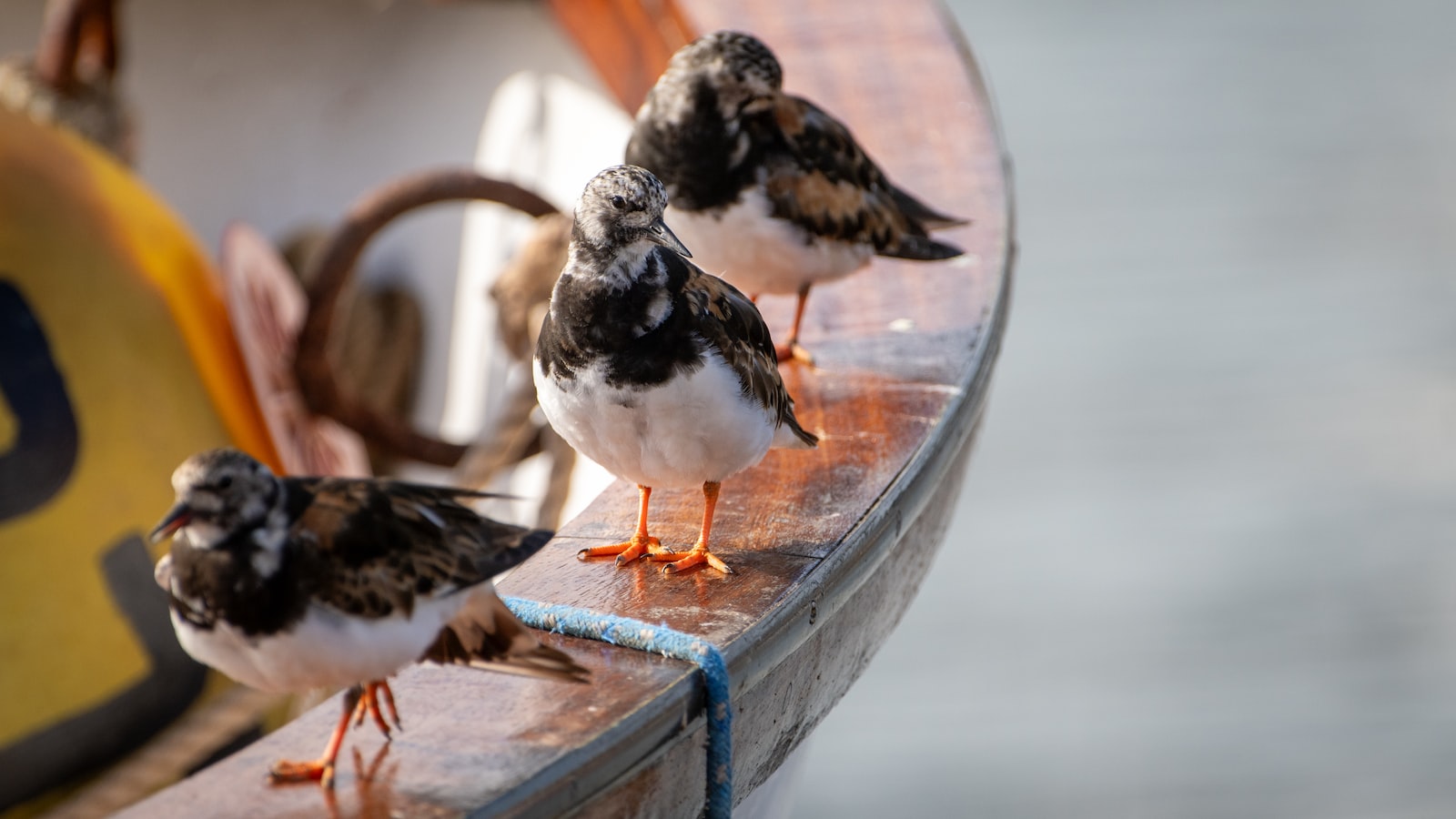
Sustainable tourism plays a crucial role in preserving the population of Ruddy Turnstones in Masai Mara National Park. These migratory birds, known for their striking black and white plumage, rely on the park’s rich biodiversity for their survival. By promoting sustainable tourism practices, we can ensure the long-term conservation of this unique species and the fragile ecosystem they call home.
One of the key ways in which sustainable tourism contributes to the preservation of Ruddy Turnstones is through the protection of their habitat. The Masai Mara National Park is a haven for these birds, providing them with abundant food sources and safe breeding grounds. By adopting responsible tourism practices, such as minimizing habitat disturbance and adhering to designated trails, we can prevent the destruction of critical nesting sites and ensure the availability of essential resources for the Ruddy Turnstone population.
- Minimize disturbance to nesting sites and breeding areas.
- Respect designated trails and avoid venturing off-path.
- Conserve water resources by opting for eco-friendly accommodations.
- Support local communities and sustainable tourism initiatives.
Sustainable tourism not only benefits the Ruddy Turnstone population but also contributes to the overall well-being of the Masai Mara National Park. As responsible travelers, it is our duty to preserve the beauty and diversity of this incredible destination for future generations. Let us cherish and protect the Ruddy Turnstone and its habitat by embracing sustainable tourism practices in the stunning Masai Mara National Park!
Q&A
Q: What makes the Ruddy Turnstone a unique species found in the Masai Mara?
A: The Ruddy Turnstone is known for its vibrant plumage, which consists of rusty brown feathers that contrast beautifully with its striking black and white pattern. Its distinctive appearance sets it apart from other bird species in the Masai Mara.
Q: Can you discuss the behavior and habits of the Ruddy Turnstone?
A: The Ruddy Turnstone is a social bird that can often be found in small flocks, creating a lively atmosphere as they forage along the shores of rivers and lakes in the Masai Mara. These birds are known for their resourcefulness, as they use their bill and strength to turn over stones and shells in search of invertebrates and other small prey.
Q: How does the Ruddy Turnstone survive in its natural habitat?
A: The Ruddy Turnstone has adapted to various habitats, such as coastal areas and inland grasslands. In the Masai Mara, they have developed a reliance on the abundance of insects and invertebrates found in the region’s water bodies. Their sharp eyesight allows them to efficiently locate and capture their prey.
Q: Are there any interesting breeding habits or rituals associated with the Ruddy Turnstone?
A: Yes, indeed! The Ruddy Turnstone is known for its complex courtship rituals, which include males engaging in displays of aerobatic flight and vocal calls. During courtship, males will also form temporary territories to impress females. Once a pair has formed, they will work together to build a shallow nest, often hidden in the grass, where they will lay and incubate their eggs.
Q: Are there any conservation concerns for the Ruddy Turnstone in the Masai Mara?
A: Despite being a relatively common species, the Ruddy Turnstone faces certain conservation challenges, particularly due to the degradation of its habitats. Human activities, such as pollution and habitat destruction, can negatively impact their population. Additionally, disturbances caused by visitors to the Masai Mara should be minimized to ensure their wellbeing.
Q: How can tourists and visitors help in the preservation of the Ruddy Turnstone?
A: Visitors can contribute to preserving the Ruddy Turnstone and its habitat by adhering to responsible tourism practices. This includes staying on designated paths, avoiding disturbing nesting areas, and refraining from littering. Supporting local conservation efforts and organizations can also make a positive impact on the long-term survival of the species.
Future Outlook
In the ever-changing tapestry of nature’s marvels, there exists a creature that embodies resilience, curiosity, and unwavering determination. As we bid farewell to the enchanting world of the ruddy turnstone, we can’t help but revel in the beauty and mystique that surrounds this remarkable shorebird.
From the remote shores of the Arctic tundra to the sandy beaches of distant continents, the ruddy turnstone dances effortlessly through life’s challenges. Its elegant figure, adorned with a palette of vivid reddish-brown hues, swiftly captures the attention of avid birdwatchers and casual observers alike. Donning a stout, orange-tinged bill and uniquely mottled plumage, the ruddy turnstone paints a picture of resilience amidst a changing world.
Behind the delicate form of this feathered wonder lies a spirit of perseverance that defies the odds. Tirelessly, the ruddy turnstone undertakes monumental journeys, crossing vast stretches of land and sea in pursuit of nourishment and habitat. Its boundless stamina allows it to travel thousands of miles, seamlessly navigating the ever-shifting winds and treacherous currents. With an unyielding resolve, the ruddy turnstone etches its mark upon the pages of migratory history.
In its quest for sustenance, the ruddy turnstone masterfully employs its sharp bill, peering into crevices and unearthing hidden delicacies. The artistry of its feeding habits showcases a cunning intellect as it deftly turns stones and shells, revealing a bountiful harvest of small invertebrates. A true connoisseur of the intertidal buffet, this charismatic shorebird has carved an indelible niche in the intricate coastal ecosystems it calls home.
But the ruddy turnstone’s influence stretches far beyond its dedicated diet. Like a winged envoy of unity, it forges connections between distant lands and diverse communities. Its nomadic nature transcends boundaries, bridging the expanses between our global neighbors. Each year, these tireless travelers unite cultures and ignite a shared sense of awe and respect for the natural world.
As we draw the curtain on this exploration into the life of the ruddy turnstone, we are left with a renewed appreciation for our planet’s incredible biodiversity. Its tireless resilience and boundless wanderlust serve as an enduring reminder that we, too, have a role to play in nurturing the delicate balance of our ecosystems. Let the ruddy turnstone’s tale inspire us all to take flight, to immerse ourselves in the beauty of nature, and to safeguard the world we share.




